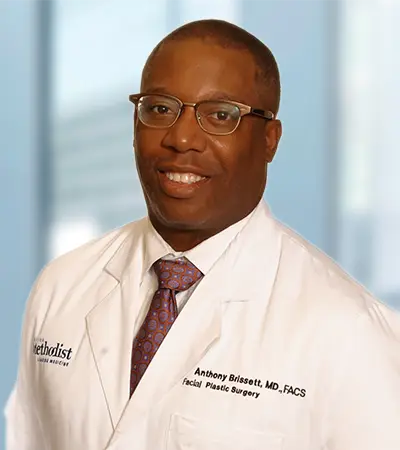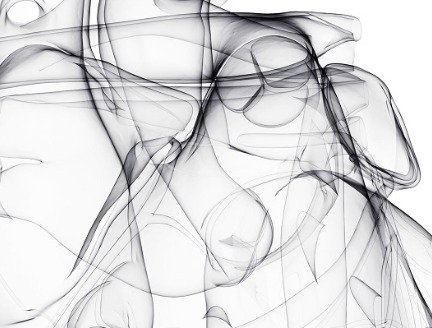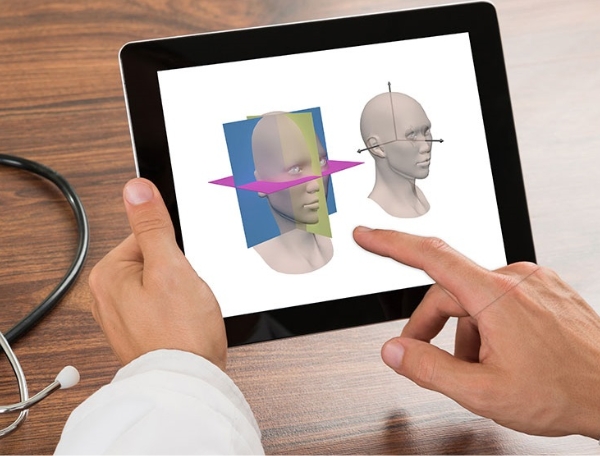


restorative medicine
Facial Plastic Surgeon Transforms Lives and Global Health Care
Facial Plastic Surgeon Transforms Lives and Global Health Care

Anthony Brissett, MD, FACS
Growing up in Canada with Jamaican roots, Anthony Brissett, MD, FACS, always knew he wanted to work in health care.
Driven by his curiosity in science and desire to help people, Brissett has since become known for his remarkable skills in facial rejuvenation rhinoplasty, skin cancer treatment, facial scar revision, and ear surgery procedures. He is also highly regarded worldwide for his philanthropic work.
But before becoming a board-certified otolaryngologist and facial plastic surgeon, he was a young hockey player who aspired to become a nurse.
Like many young Canadian boys, Brissett grew up playing hockey and cheering on professional hockey teams. Through his love of the sport, Brissett first observed the impact of significant facial injuries. As an adult looking back, he now realizes that these experiences likely influenced his career path of facial plastics and reconstructive surgery.
However, Brissett initially began his journey in health care as a nurse.
“I initially thought I wanted to do nursing because I thought it would allow me to spend more time with patients,” he explained. “But then, with the help of mentors, I realized that physicians have those same opportunities.”
Those mentors, including the Dean of Wayne State University School of Medicine in Detroit, MI, would have a profound impact on Brissett’s career. How he met these mentors would be what some might call fate.
This is the gift that I've been given. I freely share it with whomever I can, and that is the gift of service.
Anthony Brissett, MD, FACS
Professor of Otolaryngology
“When I was still pursuing nursing, I worked alongside Wayne State University medical students and residents at a local hospital,” Brissett explained. “These individuals felt that I would be better suited as a doctor, so they introduced me to their dean. He told me that if I made a 4.0 GPA in all the science prerequisite courses that I needed to take for medical school, he would offer me a scholarship. I came back two years later with a 4.0 GPA, and he fulfilled his promise.”
This funding paved the way for Brissett to go to medical school in the United States without the added cost of being an international student.
After earning his medical degree, he began working toward a surgical subspecialty at the Mayo Clinic in Rochester, MN. There, he completed his otolaryngology residency with a focus on facial plastic and reconstructive surgery.
But before becoming a board-certified otolaryngologist and facial plastic surgeon, he was a young hockey player who aspired to become a nurse.
“The complexity of the head and neck area and varying pathology attracted me to this specialty,” Brissett said. “The creative aspect of reconstructive surgery on such a unique part of the human body also intrigued me.”
After his residency training, Brissett stayed at the Mayo Clinic for a post-doctoral fellowship in wound healing, which introduced him to academic medicine. He then worked with top surgeons at the University of Minnesota while completing his clinical fellowship.
That’s when he was presented with an opportunity to work in the largest medical complex in the world.
“Dr. Bobby Alford recruited me in 2003 to develop the facial plastic and reconstructive surgery program at Baylor College of Medicine,” Brissett said. “It was an opportunity for professional growth that would allow me to develop my practice while conducting research and teaching the next generation of head and neck surgeons.”
Image from KHOU News.
After 15 years at Baylor, Brissett joined Houston Methodist as a Professor of Otolaryngology, where he continues to treat patients, mentor residents and conduct research.
Some of Brissett’s latest research examines perceptions and understanding of facial scarring and wound healing as well as rhinoplasty considerations in ethnic patients.
Putting his research into practice, Brissett has earned a strong reputation for his ethnic-sensitive rhinoplasty work, which involves improving the appearance and function of patients’ facial features while preserving their cultural identity. According to Brissett, the demand for ethnic-sensitive rhinoplasty has increased in the last two decades as patients wish to get the care they need without sacrificing the ethnic features that make them unique.
“There are few physical features that uniquely identify us as who we are,” he emphasized. “Most of the time, your face is one of those unique identifiers. So, one’s face is important to one’s appearance and identity.”
Left to right: Surgical Technician Heather Leard; otolaryngology – head and neck surgeon Joshua J. Kain, MD, FACS; Oral and Maxillofacial Surgeon Terry D. Taylor, DDS; Anthony Brissett, MD, FACS, Vice Chair and Professor of Clinical Otolaryngology-Head and Neck Surgery at Houston Methodist Academic Institute and Division Chief of Facial Plastic and Reconstructive Surgery at Houston Methodist ENT Specialists; Anesthesiologist Burke T. Bradley, MD; Nurse Amy C. Bradley
Brissett also has a well-known reputation for his philanthropic work abroad.
As group vice president of humanitarian programs for the American Academy of Facial Plastic and Reconstructive Surgery, Brissett is proud to identify needs worldwide and deploy to various locations, including Rwanda, Bangladesh, Russia, Ghana and, most recently, war-torn Ukraine.
The recent trip to Ukraine marks the second time Brissett and his team traveled abroad to treat life-altering head and neck injuries in Ukrainian soldiers and civilians. Many of these injuries require multi-step reconstructions, so there were several patients that Brissett treated last year that he continued to treat this year.
“These patients may have been injured from mine blasts, gunshots or other means, causing massive facial injuries, including loss of soft tissue and catastrophic injuries to their nose, jaw and orbits,” Brissett said. “It’s always a challenge when you see human tragedy.”
In addition to performing 97 hours of reconstructive surgery, Brissett’s volunteer team hosted various educational opportunities for Ukrainian medical personnel including an educational symposium and live streamed surgeries.
“As we train medical personnel in how to treat complex head and neck injuries, we are ensuring a sustainable difference for those affected by the Russia-Ukraine war,” Brissett said.
Another recent philanthropic accomplishment is establishing a 46-bed hospital in Ghana known as the West African Institute for Specialized Surgery. Brissett plans to support the hospital’s Department of Head and Neck Surgery in leading a global medicine experience where United States residents can participate in enhancing their awareness of global health.
Back home in Houston, Brissett’s philanthropic work is just as impactful.
He is one of the founding members of Casa El Buen Samaritano, a clinic dedicated to providing health care to low income and uninsured patients. In partnership with Brissett’s church, the clinic serves more than 200 patients per month by providing state-of-the-art care they might not otherwise be able to afford.
But perhaps most important to Brissett is time well spent with family. He is a proud father and husband of his high school sweetheart who has supported him every step of his career.
“She’s a psychologist. I tell people I see a therapist every day,” he joked. “But seriously, I don't think I would have been successful in any of these endeavors if it was not for the support and encouragement of my wife.”
Brissett’s two daughters have impressive resumes of their own. Accomplished tennis players, the two are pursuing higher education—and there may soon be another doctor in the house.
In terms of the future, Brissett hopes to engage in even more volunteer work. In all his projects, he keeps Houston Methodist’s ICARE values at the core of his work.
“We're all given a gift. Are we going to let that gift shine or are we going to bury it and hide it from the world?” he said. “This is the gift that I've been given. I freely share it with whomever I can, and that is the gift of service.”
Callie Rainosek, MS
June 2024
Related Articles







